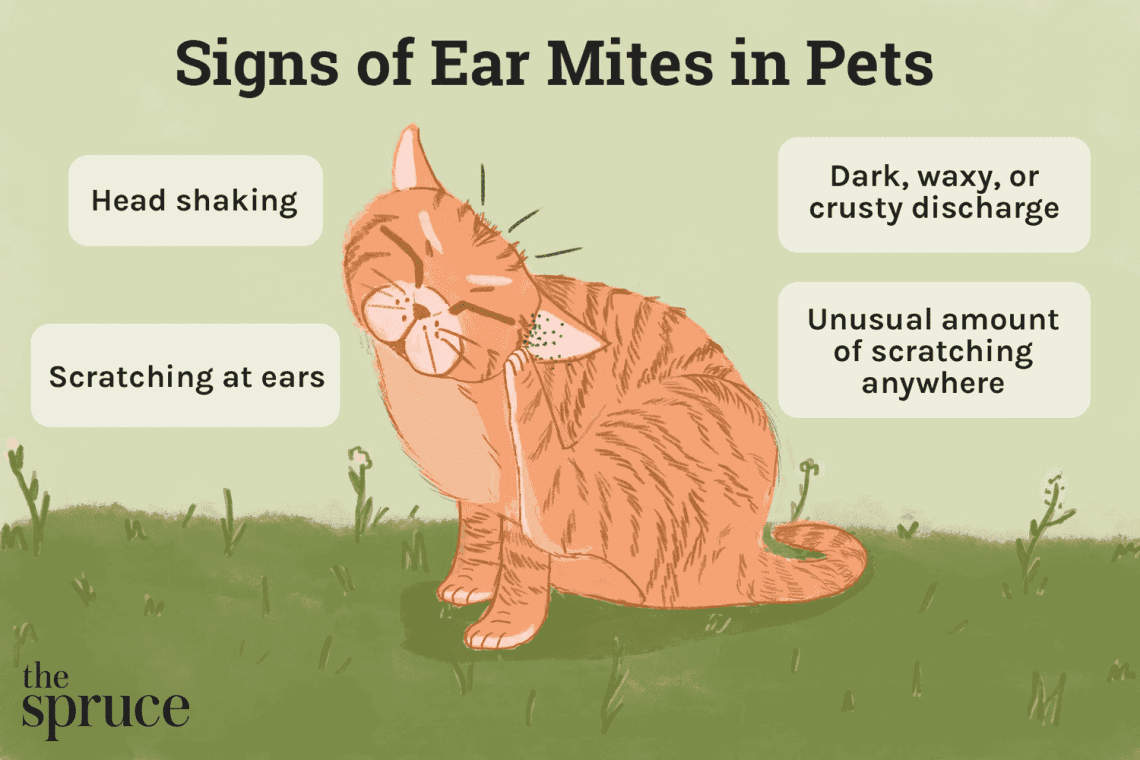
Ear mites in cats and kittens: signs, symptoms and treatment
What you need to know about ear mites in cats The ear mite is a parasite that causes the infectious disease otodectosis in cats and dogs. Microscopic mite most often affects the skin of the external auditory canal. The parasite is transmitted from a sick cat to a healthy one by direct contact. The ear mite and its eggs are able to survive in the external environment for several months. That is, during this period, it can re-infect your pet, even if you have already completed a course of treatment.
Symptoms Otodectosis is the leading cause of ear problems in cats. Although it can affect any animal in your home, the most serious problems occur in kittens.
Otodectosis is the leading cause of ear problems in cats. Although it can affect any animal in your home, the most serious problems occur in kittens.
Symptoms to look out for:
- Reddish-black spots in the ear canal(s).
- Scratching and rubbing the diseased ear.
- Frequent twitching of the ears and shaking of the head.
- In rare cases, otodectosis can affect other parts of the cat’s body. Hair loss in a certain area and reddened, scratched skin can also indicate a mite infestation.
Veterinarian’s diagnosis Your veterinarian will confirm the diagnosis by examining your kitten’s ear canals with a special magnifying instrument called an otoscope and examining the contents of the ear under a microscope. The mites that cause otodectosis are very small and cannot be seen with the naked eye.
Treatment and home care Ear problems should be dealt with consistently and carefully, depending on the diagnosis. In some cases, treatment may take several weeks.
In most cases, veterinarians recommend a thorough and gentle cleaning of your kitten’s ears to ensure the effectiveness of subsequent treatment. Because ear mites can easily infect other pets, all cats and dogs in your home must be treated to eliminate the mites.
Home care usually includes treating your pet with antiparasitics and other medications, so be sure to follow your veterinarian’s instructions to make sure your kitten is cured. To get rid of ticks and their eggs, the house or apartment should be thoroughly treated with flea sprays or sprays. This will reduce the chance of re-infection.
Food If your cat has an ear mite, your veterinarian may advise you to change the food. In kittens, nutrition is especially important for optimal growth and the proper development of the immune system. In some cases, your veterinarian may recommend a hypoallergenic dietary cat food to limit exposure to potential allergens. Ask your veterinarian about Hill’s foods that are appropriate for your pet’s condition.
If this does not contradict the recommendations of the veterinarian, transfer the kitten to a new food gradually, over a period of seven days.





